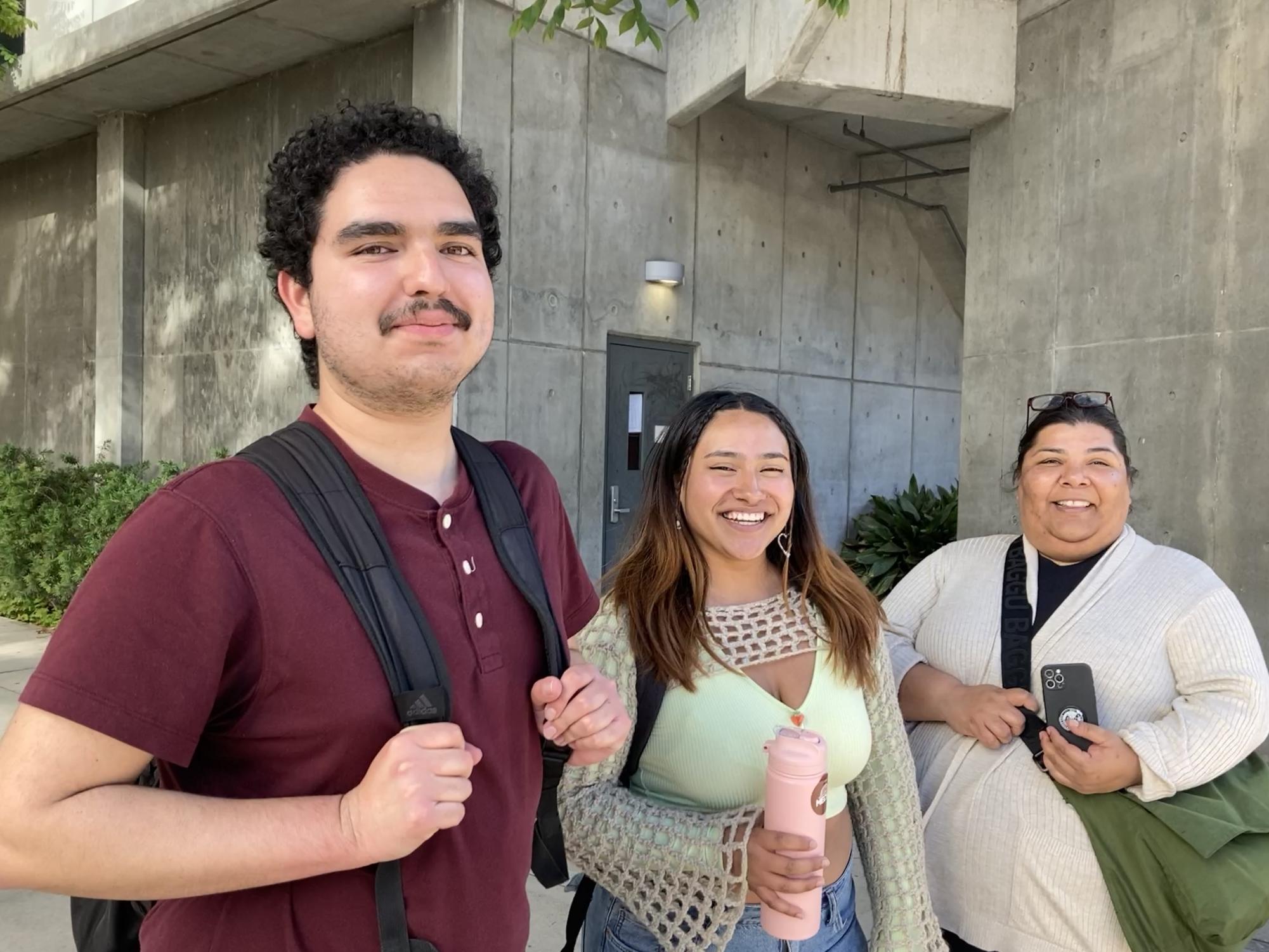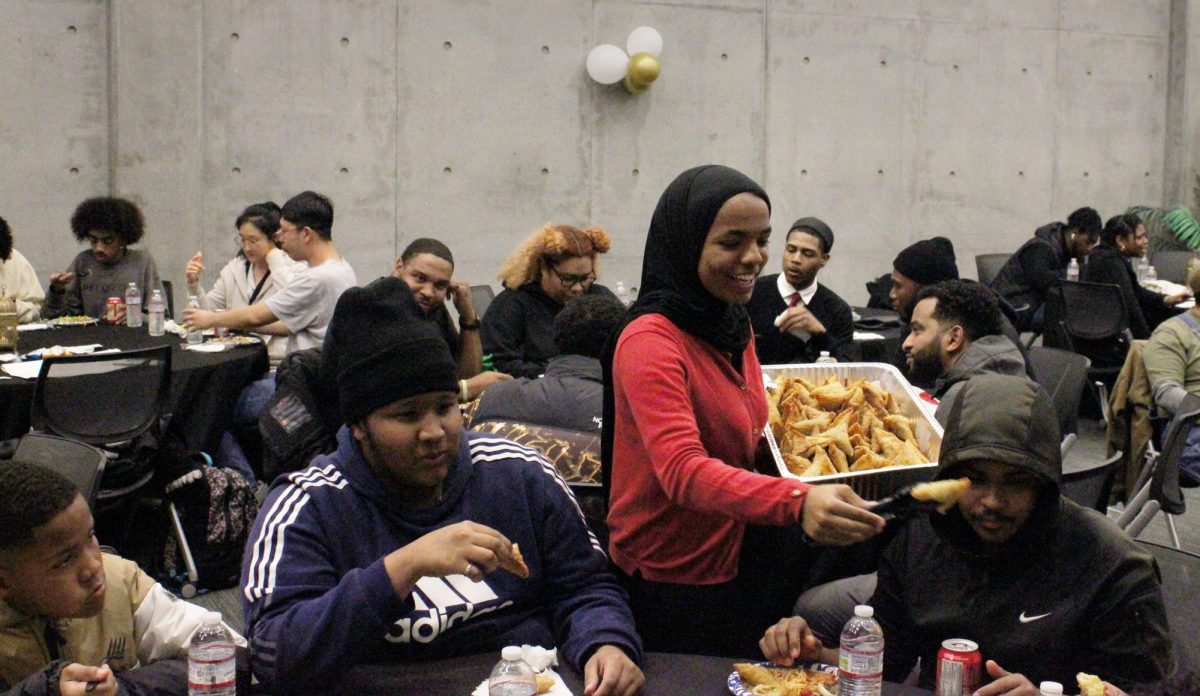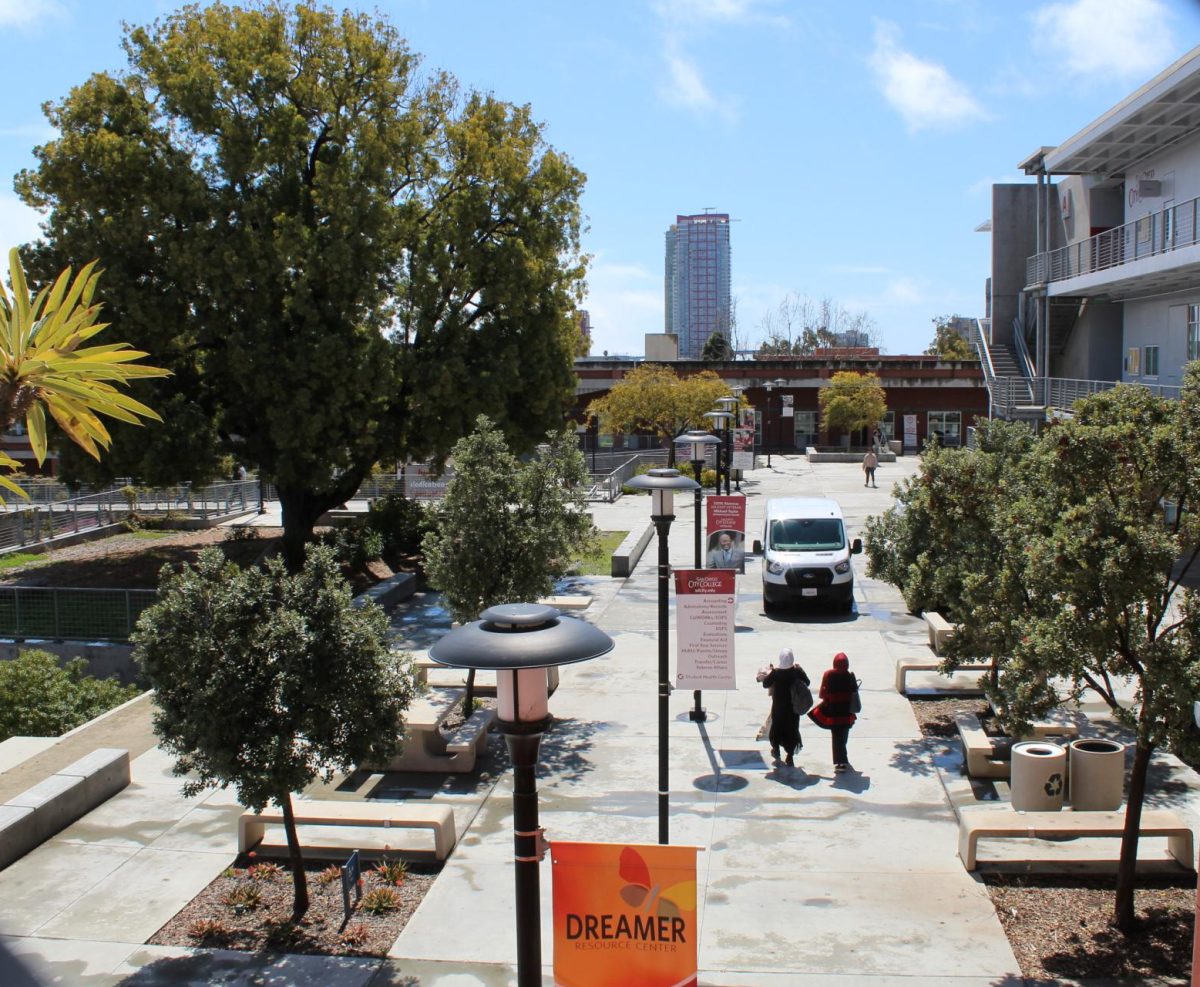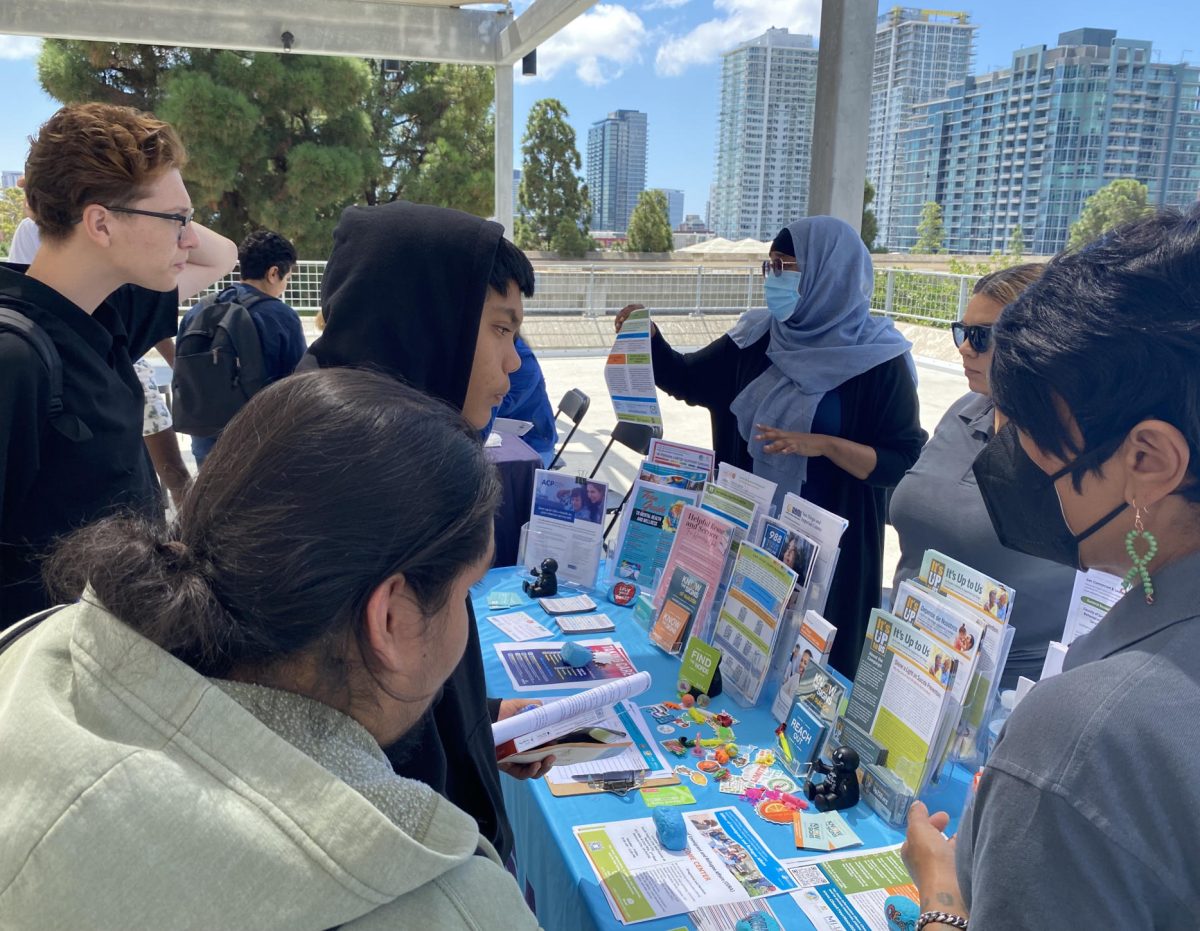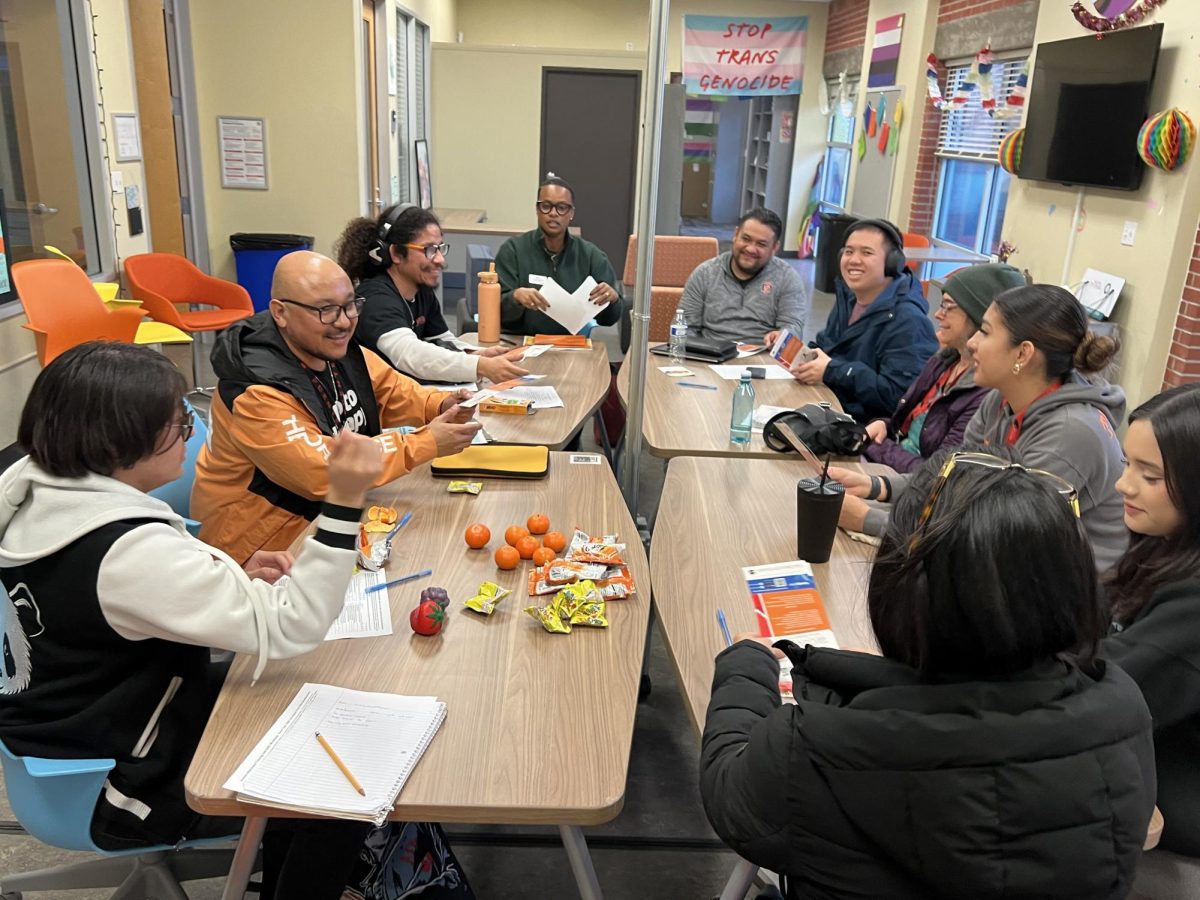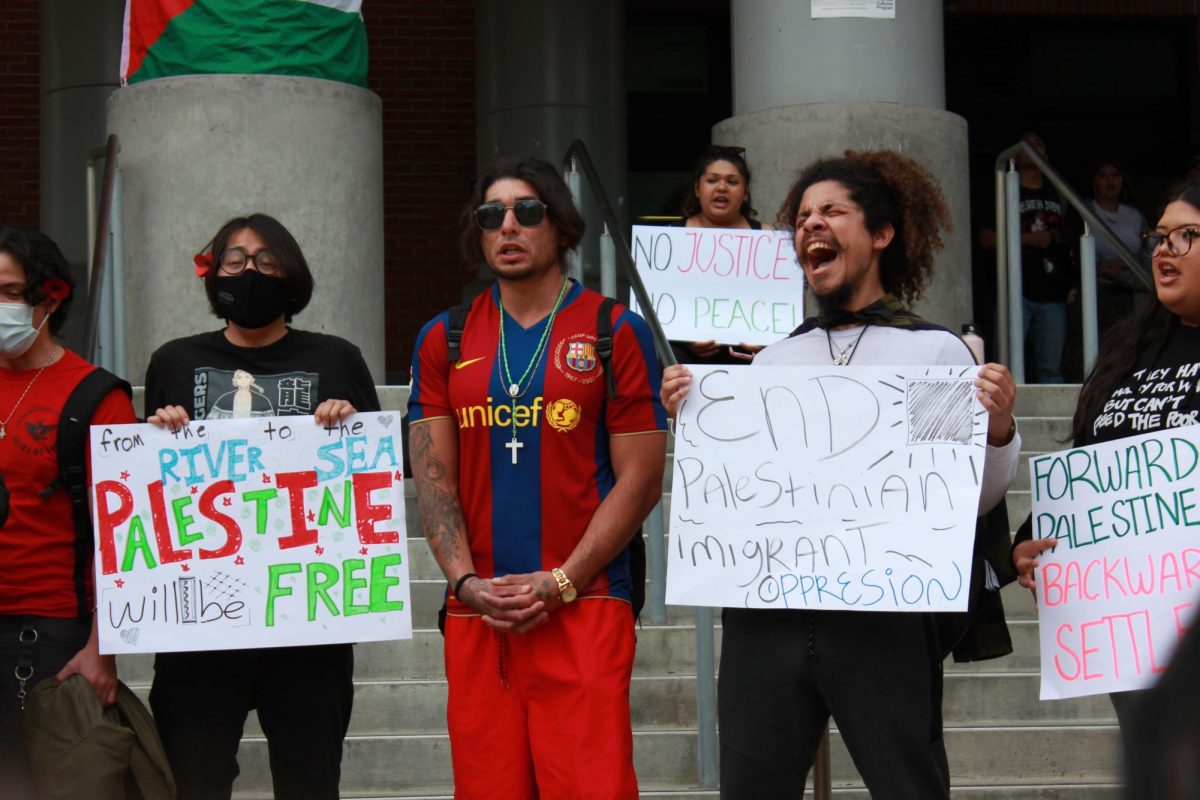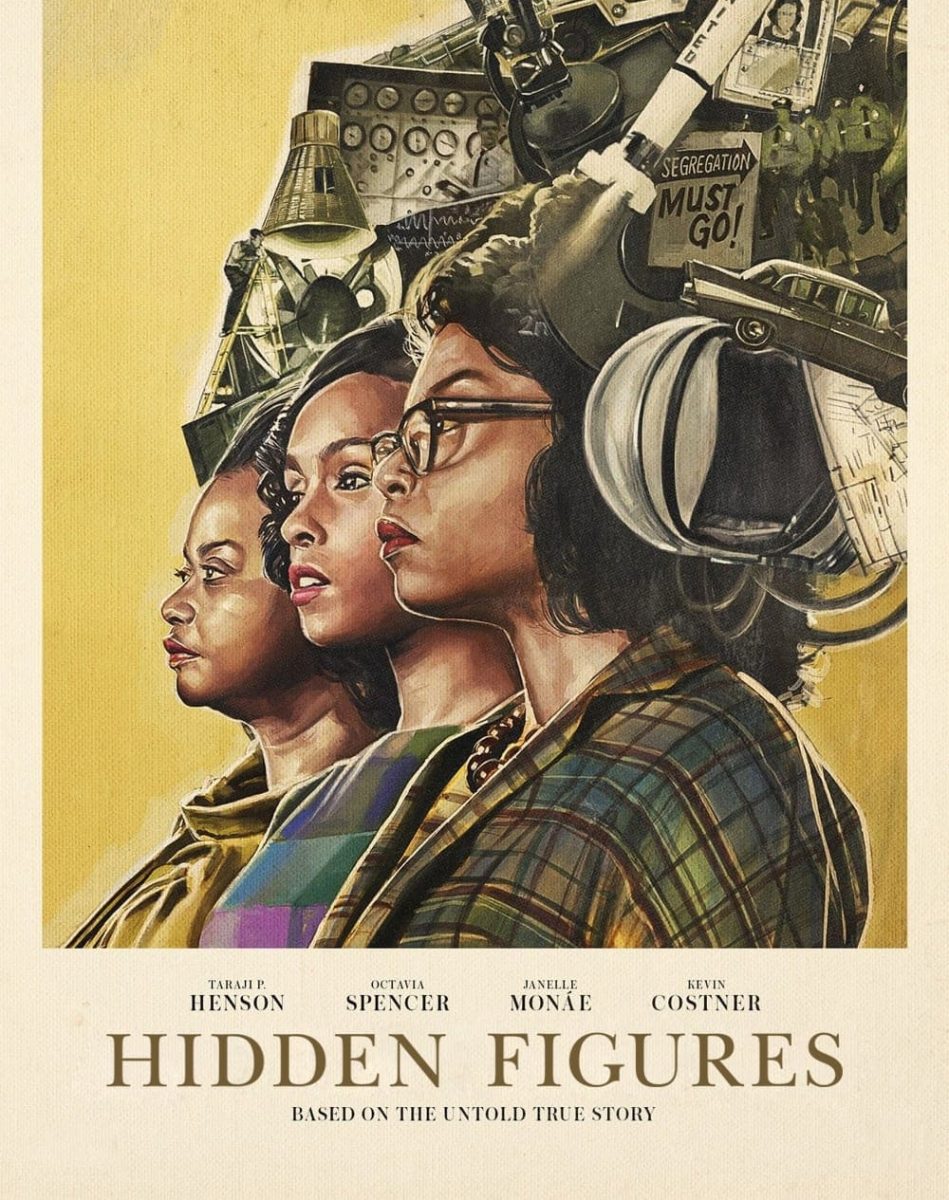Diego Zavala-Morineau found himself apologizing a second time to his fellow San Diego City College M.E.Ch.A. members during their Mesa Directiva meeting.
City College’s student organizers were orchestrating logistics for “Nuevas Identidades,” their upcoming student-led social justice conference on campus, but Zavala-Morineau, the group co-chair, caught himself guiding them down another of his signature sermons, filled with subversive and self-reflective decolonial critiques.
Before the second-year English major could finish admitting to “monopolizing” the space again, the room full of captivated activist-scholars cheerfully broke into reassuring him he had committed no offense.
“You’re making my brain tingle again,” M.E.Ch.A. Secretary Vanessa Velez said. “It’s been a while. Thank you.”
M.E.Ch.A. de City College is taking its provocative high-theory and community-focused logistics to the landmark “Nuevas Identidades,” in the City College MS building May 9.
The first-annual M.E.Ch.A. conference will host panels and workshops aimed at challenging institutionalized notions of social justice, according to a conversation City Times had with Velez and Zavala-Morineau.
Organized in conjunction with City’s Chicano/a Studies Department, the event will invite organizers from the Environmental Health Coalition, Collective for Justice and Solidarity and the San Diego Tenants Union, among others, to present on their experiences effecting change locally in the respective fields they advocate for.
M.E.Ch.A. advisor and Chicano/a Studies Department Chair Justin Akers-Chacon told City Times in a written comment that the student organizers are reviving the tradition of student-led conferences that ultimately gave birth to the Chicane movement of the 60s.
“The City M.E.Ch.A. students are very motivated, self-activated, consciente (conscious) and determined to address the social justice and educational issues they are facing,” Akers-Chacon said. “In dialogue we agreed it would make sense to start that tradition anew at City, with students leading on all aspects and faculty supporting and participating.”
The conference will kick off with a welcome session from 8:45-9:20 a.m., followed by an introductory panel from 9:30 am to 10:30 am.
To set the tone, the introductory panel will present speakers from a range of disciplines and organizations that will pose the question, among others, “How do we bring radical language (decolonization, indigeneity, landback, settler colonialism, etc.) outside of abstract, academic spheres and into the transformation of realities?”
The first workshop session will run from 10:45 a.m. to noon, hosting four panels ranging from a research presentation challenging colonial perceptions of witchcraft to an environmental justice workshop.
Among the four panels presenting during the 1:15-2:15 p.m. workshop session, an Indigenous-Chicane dialogue will pose the question, “how do we reconcile with the shortcomings of Hispanic Serving Institutions to Indigenous students and faculty?”
Simultaneously, Zavala-Morineau will lead a discussion framing the “radicalizing” of neurodivergent and disabled activism, addressing the unique challenges these members in communities of color face.
“Centering kind of the disabled experience,” Zavala-Morineau said at the organizing meeting when seeking effective practices to activate neurodivergent and disabled students. “… Within radicalization, what needs to be radicalized? What needs to change in our language?”
The conference will close out with a 2:30 p.m. performance by Ballet Folklorico de City College lead by M.E.Ch.A. member Crystal Cruz.
As advertised, these students will take the reins, pushing each panelist at their social justice conference to discuss the “harder topics,” to face their contradictions and “to give that fierceness,” as Velez said.
Their professors paved the way and the students will lead it, like in previous generations.
“That’s pretty much our M.O. at this point (at M.E.Ch.A.),” Velez said. “Like, ‘Could you give us all the knowledge? Okay, now we’re gonna tell you what we do with it.’”
Perhaps they’ll make some brains tingle in the process.

